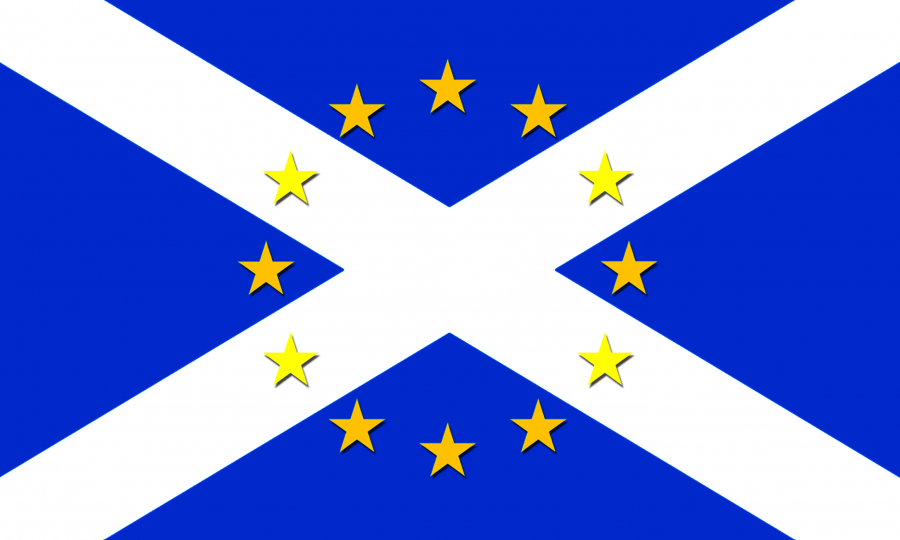Brexit brings Scotland to a crossroads with EU, independence movement
April 6, 2017
In June 2016, Britain sent shockwaves across the globe when 52 percent of citizens voted to withdraw from the European Union. As Brexit is about to become a reality, Scotland is arriving at a crossroads.
While the majority of the United Kingdom voted to leave the EU, Scotland voted 62 percent to 38 percent to stay. This divide has reignited an independence movement in Scotland, three years after the country held a referendum to leave the United Kingdom. That movement ultimately came up short, as Scotland narrowly voted against its independence in September 2014.
However, Brexit has given a newfound importance to the issue of Scottish independence. Now the choice is not only whether Scotland wishes to gain independence from Britain, but also whether they wish to withdraw from the benefits of being a member of the EU.
Scottish Parliament plans to request another independence referendum, but it’s unlikely that British Prime Minister Theresa May will allow such a vote to take place prior to Britain’s withdrawal from the EU.
The situation is a double-edged sword for Scotland: according to BBC News, Britain accounted for 63 percent of Scotland’s trade in 2015. The rest of EU accounted for 16 percent of Scotland’s trade for 2015, although Scottish First Minister Nicola Sturgeon notes that trade with the rest of the EU comprises 40 percent of the country’s “international trade.”
Leaving the EU would prevent free trade between Scotland and other members of the bloc, but leaving Britain could be even more harmful considering how integral its markets are to the Scottish economy.
Within Scotland, there has been contentious debate regarding which trade-off is better for the country. BBC Scotland’s Douglas Fraser points out that the pro-Brexit side values actual Scottish sales, while the anti-Brexit side values the potential for Scottish sales across the EU.
Regardless of the economic implications Brexit may have on Scotland, the country’s fate as a member of the EU and the United Kingdom ultimately lies in May’s hands.
If May allows a Scottish independence referendum before Britain leaves the EU, there is still the chance that Scottish voters may change their minds about whether divorcing from the United Kingdom is the right option. Current trends may indicate the potential for a successful vote, but anything can happen in between now and a future referendum. After all, many doubted that Brexit could happen in the first place.
Moreover, Scottish independence could backfire on its citizens if the EU markets do not prove to be as rich as promised. In addition, Scotland may be required to apply to be a member of the EU as an independent country. This would be a lengthy process and would at least delay any economic prosperity that the EU could bring to an independent Scotland.
The best political move might be for Scotland to simply pass the buck to May. If she allows an independence referendum, it’s a win for Scotland. If May does not allow a referendum, the backlash could even strengthen the Scottish independence movement.
Plenty of uncertainty awaits Britain and the EU in the coming years. Putting the ball in May’s court may not lead to long term success for Scotland, but the pressure on the prime minister should at least sustain—and possibly grow—the Scottish independence movement for the near future.



























